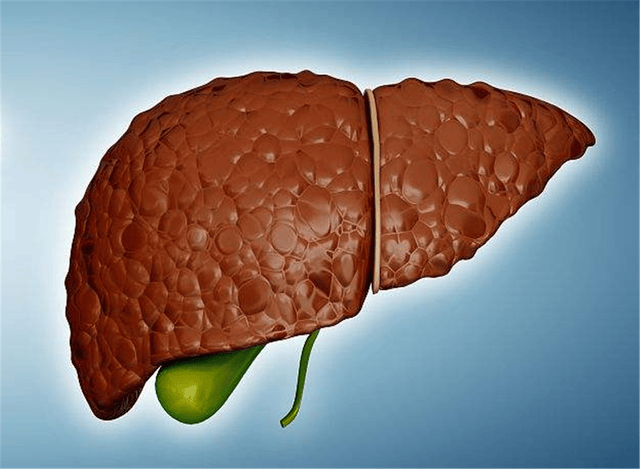Recently, the number of people suffering from liver diseases has been increasing, seriously affecting people’s healthy lives.
The liver, as an important detoxification and metabolic organ, helps eliminate toxins and waste from the body, maintains normal body function. However, many people neglect liver care, leading to a high incidence of liver diseases.
For example, common liver diseases like hepatitis and cirrhosis seriously affect personal health. Therefore, attention should be paid to diet adjustments in daily life. Many people suggest that individuals with poor liver health should not consume peanuts as overconsumption can worsen the condition. But is this true?
Is it true that individuals with poor liver health should not eat peanuts?
As a common type of nuts in daily life, peanuts can help supplement necessary micronutrients and iron to prevent anemia. Peanuts contain a variety of nutrients beneficial to health. Some people with liver discomfort can also benefit from consuming peanuts in moderation due to their rich nutritional content.
However, it is important to control the amount consumed as peanuts are relatively high in fat content. Excessive intake can exceed fat intake limits, overburden the liver, leading to fatty liver and liver diseases.
Especially remember to avoid consuming peanuts that have been stored for too long as they may become moldy. It is not recommended to eat moldy peanuts to prevent excessive intake of toxic substances that can burden the liver and lead to liver disease.
Entering the summer, it is a critical time for liver care. During this period, dietary and lifestyle adjustments should focus on liver care and protection.
Summer Liver Care: Remember the “5 Eat, 5 Avoid” rules for a healthy liver.
【5 Eat】
1. Raisins
For individuals with liver discomfort, consuming raisins in daily life can help support liver health. Raisins, with their sweet and sour taste, can improve digestion, have strong antioxidant effects, and aid in the removal of free radicals from the body, which slows down aging effects.
Raisins also contribute to liver detoxification by eliminating toxins accumulated in the liver, preventing liver cell damage, improving liver function, reducing the risk of liver diseases, promoting liver cell self-repair, and enhancing liver health.
2. Wu Mei (Chinese plum)
For individuals with liver diseases, consuming Wu Mei regularly is beneficial as it stimulates appetite, aids in digestive fluid secretion, and contains organic acids that contribute to liver cell self-repair, improving liver function and detoxification to promote liver health.
3. Black Garlic
Black garlic exhibits strong antioxidant activity that inhibits lipid peroxidation enzymes in the body, which helps protect liver cell membranes, improve liver detoxification functions, accelerate toxin metabolism, aid in liver detoxification, and reduce the risk of liver diseases.
4. Schisandra chinensis
Schisandra chinensis, a traditional Chinese medicinal herb, has a strong liver-protecting effect. Its nutrients help repair damaged liver cells, improve liver function, eliminate toxins from the body, prevent liver diseases, and benefit overall health.
5. Apple
As the saying goes: “An apple a day keeps the doctor away.” Eating apples regularly not only benefits skin health and metabolism but also enhances toxin removal from the body, aids in weight loss, and promotes liver health by increasing liver function, detoxification, and liver cell repair.
【5 Avoid】
1. Sprouted Potatoes
Individuals with liver discomfort should avoid consuming sprouted potatoes as the presence of solanine, which forms in sprouted potatoes, is toxic and burdens the liver, potentially causing liver cell damage and triggering liver diseases.
2. Sweets
Although sweets may improve mood, overconsumption can lead to obesity and burden the liver, damaging liver health. It is advisable to control sweet intake to prioritize liver health.
3. Unblanched Spinach
Spinach, if not blanched, contains oxalic acid which, although nutritionally valuable, can harm liver health by combining with calcium to form insoluble calcium oxalate, damaging the liver.
4. Moldy Foods
Dispose of moldy foods promptly as they may contain mycotoxins that seriously harm the liver, damage liver cells, and endanger health. Early disposal is recommended.
5. Alcohol
Avoid excessive consumption of alcoholic beverages as they heavily burden the liver. Alcohol abuse increases the risk of liver diseases by damaging liver function. It is beneficial to quit alcohol consumption early to reduce harmful substance intake and enhance liver health.
To further care for your liver, incorporate the following practices:
1. Focus on exercise to boost metabolism, aid toxin elimination, promote liver detoxification, and enhance liver health.
2. Ensure quality sleep to maintain stable hormone levels, support liver cell self-repair, and detoxification.
3. Drink plenty of water to enhance metabolism, eliminate toxins, reduce liver burden, and prevent liver diseases.
4. Regular health check-ups help monitor health status and make timely adjustments to support liver health.
5. Maintain an optimistic attitude, stabilize internal hormone balance, strengthen liver function, and elevate liver health.
What other liver care tips do you know? Feel free to share in the comments below.


